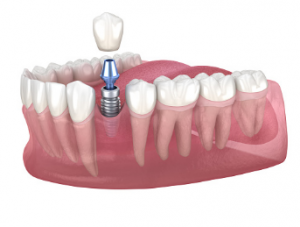Dentists provide invaluable service by keeping people’s teeth in great condition and offering insight into overall health issues that may threaten people. Dental issues left untreated may lead to diabetes, heart disease or preterm labour complications during gestation.
An occupation as a dentist demands medical training, an undergraduate degree and advanced training in dentistry. Communication skills and interpersonal abilities also play an integral part of this profession. To know about the how much is the dentist cost Adelaide, click here.
Dental Hygiene
 Maintaining healthy teeth and gums are crucial to overall wellbeing. Any infections in your mouth could spread throughout your body and lead to heart disease, diabetes, and other serious ailments. Regular dental cleanings help remove plaque and tartar that accumulates on teeth, decreasing risk factors associated with heart disease and diabetes.
Maintaining healthy teeth and gums are crucial to overall wellbeing. Any infections in your mouth could spread throughout your body and lead to heart disease, diabetes, and other serious ailments. Regular dental cleanings help remove plaque and tartar that accumulates on teeth, decreasing risk factors associated with heart disease and diabetes.
Dental hygienists are licensed healthcare professionals who collaborate with dentists to promote oral hygiene and preventive dentistry. Their services may include the removal of plaque and stains, taking and developing dental X-rays, applying cavity preventative agents like fluoride and pit and fissure sealants as well as applying fluoride treatments or pit and fissure sealants.
Dental hygienists must demonstrate patience as each patient will require different attention. They work directly with patients to explain how good oral hygiene practices can improve overall health.
Tooth Cleanings
Regular dental cleanings can protect against tooth decay, gum disease and other dental complications. Regular cleanings remove plaque from bacteria-filled build-up on teeth as well as tartar (hard deposits of mineral that stains teeth).
Plaque is the leading cause of tooth decay, slowly eating away at tooth enamel over time. Tartar, however, requires special tools from a dentist to be removed successfully during a professional cleaning.
Dental cleanings allow dentists to identify potential issues, such as bad bites or TMJ, as well as offer nutritional and oral hygiene recommendations.
X-Rays
X-rays provide healthcare providers with an efficient and painless method of seeing inside of the body, and can detect fractures, infections and dental issues such as cavities. They may also reveal evidence of arthritis or lung conditions like pneumonia and tuberculosis. To know about the how much is the dentist cost Adelaide, click here.
An X-ray requires you to lie still while the technologist positions your body to capture all necessary images. They may use pillows or sandbags to help hold still and may ask you to take deep breaths so the images aren’t blurry.
For certain types of X-rays, contrast medium such as barium or iodine will be administered to help the provider clearly outline certain areas on your image. This allows them to focus on just those parts.
Fillings
Tooth fillings provide a critical service in protecting weakened tooth enamel from further decay while also restoring function and aesthetics of affected teeth. There are various types of dental fillings, each offering its own set of advantages and disadvantages depending on your specific needs, tooth location, cost of restoration, and insurance coverage.
During this procedure, the dentist will use special cleaning instruments to eliminate bacteria and decay from the area, before using a bite block to open up their jaw so they can work quickly and comfortably. Finally, composite resin will be moulded into place using bright ultraviolet lights before being hardened for maximum impact protection.
Extractions
Tooth extractions are a standard part of orthodontic care. Orthodontists frequently employ extraction to help alleviate crowding in your teeth and achieve long-lasting, straight results that improve health and appearance.
Your orthodontist will suggest tooth extraction only when they believe it’s necessary for straight, healthy teeth and an amazing smile. With local anaesthesia or sedation provided during extraction, there won’t be any discomfort felt during removal. To know about the how much is the dentist cost Adelaide, click here.
Following an extraction, your orthodontist may use dental implants, bridges, or dentures to fill in any spaces left by extractions and ensure your mouth heals as it should. Follow their instructions closely and use an antiseptic mouthwash specifically designed to reduce risk of infection at extraction-related holes in the mouth.
Root Canals
Root canals are dental procedures used to remove bacteria and dead or dying nerve tissue from inside of a tooth, treating a variety of dental issues including severe tooth decay, repeated dental work on one tooth or injuries to pulp tissue.
Your dentist will administer anaesthetic to numb the area and ease pain. They’ll make an access hole in your tooth and use small files to remove infected areas. Afterward, they’ll clean and enlarge canals before filling them with rubber material for sealant purposes.
Implants
Dental implants are designed to look, feel, and function like natural teeth. They serve as replacement roots and help preserve bone loss by stimulating jawbone cells to keep their original shapes.
Dental implants may be suitable for people who are generally healthy and committed to practicing good oral hygiene. Heavy smokers or those suffering from undiagnosed chronic disorders that impact gum tissues or bones may not respond as favourably to this form of therapy.
Your dentist will conduct a comprehensive exam, including X-rays and 3D images, to evaluate your eligibility for surgery. If selected as a candidate, an oral surgeon will then administer local anaesthesia or sedation during surgery.
 “People who are skilled with their hands” can be defined as anyone who can build, repair or operate machinery, motors and tools efficiently and skillfully. Carpenters, plumbers or mechanics fall under this category; similarly, dental practitioners utilising their skills for extractions and root canal treatments also fall into this category.
“People who are skilled with their hands” can be defined as anyone who can build, repair or operate machinery, motors and tools efficiently and skillfully. Carpenters, plumbers or mechanics fall under this category; similarly, dental practitioners utilising their skills for extractions and root canal treatments also fall into this category. Aesthetic appeal is essential in today’s society. We thrive on visual communication and self-confidence. Cosmetic dentistry aims to improve the appearance of our teeth while retaining their functionality. While the procedures performed during a cosmetic dentistry procedure may be expensive, the materials used are durable and can last for many years. Moreover, dental procedures can help you gain a new lease on life by improving your smile and confidence. Read on to learn more about cosmetic dentistry and how it can benefit you. For more dental care tips, visit
Aesthetic appeal is essential in today’s society. We thrive on visual communication and self-confidence. Cosmetic dentistry aims to improve the appearance of our teeth while retaining their functionality. While the procedures performed during a cosmetic dentistry procedure may be expensive, the materials used are durable and can last for many years. Moreover, dental procedures can help you gain a new lease on life by improving your smile and confidence. Read on to learn more about cosmetic dentistry and how it can benefit you. For more dental care tips, visit  On the other hand, dentures can lead to painful skin irritation and an empty socket, an ideal breeding ground for bacteria. However, dental implants do not expose the empty socket, making them easier to clean. Dental implants can also improve the appearance of a person’s face because they are nearly indistinguishable from a patient’s natural teeth. And unlike dentures, dental implants are not impacted by bone loss, so you won’t need to worry about facial sagging, extra mouth wrinkles, and thinning lips.
On the other hand, dentures can lead to painful skin irritation and an empty socket, an ideal breeding ground for bacteria. However, dental implants do not expose the empty socket, making them easier to clean. Dental implants can also improve the appearance of a person’s face because they are nearly indistinguishable from a patient’s natural teeth. And unlike dentures, dental implants are not impacted by bone loss, so you won’t need to worry about facial sagging, extra mouth wrinkles, and thinning lips.